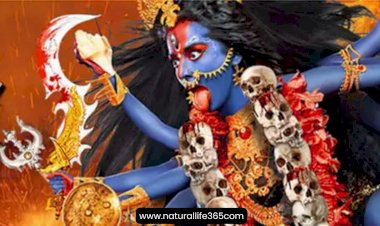Path to Enlightenment: Exploring Karma and Dharma in Hinduism
Unlock the profound wisdom of Hindu philosophy by delving into the concepts of karma and dharma.

Hey there! Have you ever wondered about the true meaning of Karma? I know you did. Growing up, I thought I understood it, but it wasn't until I set foot in India and immersed myself in Hindu culture that I truly grasped its depth. That's where my journey into the heart of Hindu philosophy began.
In India, and for Hindus, Karma isn't just a buzzword; it's a way of life. It's woven into the fabric of everyday existence, guiding actions, shaping destinies, and offering profound insights into the nature of reality. And then there's Dharma – a concept that took on a whole new meaning for me once I encountered it in its cultural context. Join me as I share the discoveries and insights gained along my path, exploring the essence of Karma and Dharma and their transformative power in our lives.
The Concept of Karma: Understanding Cause and Effect
Picture this: you're standing at a crossroads, faced with a decision. Maybe it's a small choice, like whether to hold the door open for a stranger or a more significant one, like choosing a career path. In Hindu philosophy, every action, big or small, has consequences – and that's where Karma comes into play.
Karma, derived from the Sanskrit word meaning "action" or "deed," is a fundamental concept that underpins the Hindu worldview. At its core, Karma is the law of cause and effect, dictating that every action we take – every thought, word, and deed – carries with it a corresponding outcome. It's like a cosmic ledger, keeping track of our moral and ethical balance sheet.
But here's where it gets interesting: Karma isn't just about the immediate consequences of our actions. It operates on a much deeper level, spanning across lifetimes and influencing our future experiences. The seeds we sow today may not bear fruit until tomorrow, or even in another incarnation. This interplay of actions and their repercussions forms the intricate web of Karma, shaping our individual destinies and the collective tapestry of existence.
Yet, Karma isn't merely a system of reward and punishment; it's a profound teaching on the interconnectedness of all life. Through the lens of Karma, we come to understand that every thought, word, and action ripples outwards, affecting not only ourselves but also the world around us. It's a reminder of our responsibility to tread mindfully, with awareness and compassion, knowing that each choice we make has far-reaching implications.
Dharma: The Moral and Ethical Path in Hindu Philosophy
Imagine a compass guiding you through life, pointing you towards the path of righteousness and duty. That's Dharma – a cornerstone of Hindu philosophy that offers a moral and ethical framework for navigating the complexities of existence. Rooted in ancient scriptures like the Vedas and the Bhagavad Gita, Dharma encompasses not only individual duties and obligations but also the universal principles that uphold the fabric of the cosmos.
At its essence, Dharma is about living in harmony with the natural order of the universe – aligning our thoughts, words, and actions with the greater good. It's a guiding light that illuminates the path toward spiritual growth and societal harmony, reminding us of our interconnectedness with all beings.
But Dharma is more than just a set of rules or commandments; it's a dynamic and evolving concept that adapts to the changing currents of time and circumstance. In the epic Mahabharata, for example, we see characters grappling with moral dilemmas and conflicting duties, highlighting the complexity inherent in living a dharmic life.
One of the key teachings of Dharma is the concept of svadharma – the idea that each individual has a unique duty or role to fulfill based on their inherent nature and station in life. Whether we're a student, a householder, a teacher, or a ruler, our dharma is to fulfill our responsibilities with integrity, compassion, and selflessness.
Moreover, Dharma extends beyond the realm of human affairs to encompass our relationship with the natural world. It calls upon us to be stewards of the earth, treating all living beings with reverence and respect. In this way, Dharma serves as a guiding principle for sustainable living and ecological harmony.
The Interplay of Karma and Dharma in Daily Life
Imagine your daily life as a tapestry woven with threads of action, intention, and duty. At the heart of this intricate weaving lies the interplay of Karma and Dharma – two foundational concepts in Hindu philosophy that shape our experiences and choices.
Karma, as we've explored, is the law of cause and effect, governing the consequences of our actions. Every thought we think, every word we speak, and every deed we do leaves an imprint on the fabric of reality, influencing our present and future circumstances. But how does Karma intersect with Dharma, the moral and ethical path?
In essence, Dharma provides the guiding principles that inform our actions and decisions, serving as a compass to navigate the moral terrain of daily life. It's through the lens of Dharma that we discern what actions are in alignment with our higher purpose and what actions may lead us astray. When we act by Dharma – fulfilling our duties with integrity, compassion, and selflessness – we sow seeds of positive Karma, leading to greater harmony and well-being for ourselves and others.
But here's where it gets interesting: the relationship between Karma and Dharma is not always straightforward. Sometimes, despite our best intentions and efforts to follow the path of righteousness, we may still encounter challenges and adversity. This is where the complexities of Karma come into play, reminding us that our present circumstances are not solely determined by our current actions but are also influenced by past Karma ripening and unfolding.
Moreover, the interplay of Karma and Dharma extends beyond the individual level to encompass our interactions with others and with the world around us. How we treat our family, friends, colleagues, and even strangers – whether with kindness and compassion or with indifference and harm – reverberates through the web of Karma, shaping the interconnected tapestry of existence.
Exploring Different Perspectives on Karma and Dharma
The realm of Karma and Dharma is a vast landscape, rich with diverse perspectives and interpretations that reflect the complexity of human experience and understanding. From ancient scriptures to contemporary philosophical discourse, the exploration of these foundational concepts in Hindu philosophy unveils a tapestry of viewpoints that offer profound insights into the nature of existence and the human condition.
Across cultures and traditions, variations of Karma and Dharma emerge, each colored by the unique cultural, social, and philosophical contexts in which they arise. In Buddhist teachings, Karma is intricately linked to the cycle of rebirth and the quest for enlightenment, while in Jainism, it is seen as a mechanism of bondage and liberation. Similarly, the concept of Dharma finds resonance in other religious and ethical frameworks, such as the Confucian notion of moral duty and the Stoic principle of living by nature.
Within Hinduism itself, the exploration of Karma and Dharma encompasses a multitude of perspectives, ranging from the orthodox to the heterodox, the traditional to the contemporary. Scholars and sages throughout history have offered nuanced interpretations of these concepts, reflecting the evolving understanding of the human condition and the quest for spiritual realization. From the Advaita Vedanta emphasis on self-realization and liberation from the cycle of birth and death to the Bhakti tradition's focus on devotion and surrender to the divine, each perspective offers a unique lens through which to contemplate the mysteries of existence and the pursuit of ultimate truth.
Historical Roots of Karma and Dharma in Hinduism
To understand Karma and Dharma in Hinduism, we must embark on a journey through history, tracing the origins and evolution of these foundational concepts from ancient times to the present day. Rooted in the sacred texts and scriptures of Hinduism, Karma and Dharma have deep historical roots that stretch back millennia, shaping the cultural, philosophical, and spiritual landscape of the Indian subcontinent.
The Rigveda, the oldest of the Vedas and one of the oldest known religious texts in the world, provides some of the earliest references to Karma and Dharma. In the hymns of the Rigveda, we find glimpses of the moral and ethical principles that would later become central tenets of Hindu philosophy, including the concept of cosmic order (Rita) and the idea of duty (Rta) as a fundamental aspect of existence.
As Hindu thought developed over the centuries, Karma and Dharma underwent a process of refinement and elaboration, finding expression in the Upanishads, the philosophical treatises that explore the nature of reality and the self. In texts like the Bhagavad Gita, we see Karma and Dharma distilled into practical teachings that offer guidance for living a life of righteousness and spiritual fulfillment.
However, the historical roots of Karma and Dharma extend beyond textual sources to encompass the rich tapestry of Indian culture and civilization. From the epic narratives of the Mahabharata and the Ramayana to the teachings of saints and sages throughout the ages, Hinduism has drawn upon a diverse array of sources to articulate its understanding of Karma and Dharma and their role in human life.
Applying Karma and Dharma in Modern Society
In the fast-paced and interconnected world of the 21st century, the ancient principles of Karma and Dharma continue to offer invaluable guidance for navigating the complexities of modern life. While the contexts and challenges may have evolved, the timeless wisdom embedded within these concepts remains as relevant today as it was centuries ago.
At its core, Karma serves as a reminder of the interconnectedness of all beings and the responsibility we each bear for our thoughts, words, and actions. In a world where our choices can have far-reaching consequences, embracing the principle of Karma invites us to cultivate mindfulness and awareness in our interactions with others and with the environment. Whether it's making ethical consumer choices, practicing kindness and compassion towards others, or advocating for social and environmental justice, applying the principles of Karma in our daily lives can lead to greater harmony and well-being for ourselves and the world around us.
Similarly, Dharma provides a moral and ethical compass to guide us through the complexities of modern society. In a world marked by rapid change and moral ambiguity, the principles of Dharma offer a timeless framework for making ethical decisions and fulfilling our responsibilities with integrity and compassion. Whether it's upholding honesty and integrity in our professional lives, fostering harmonious relationships within our communities, or contributing to the common good through acts of service and charity, applying the principles of Dharma can help us lead lives of purpose, meaning, and fulfillment.
Moreover, the application of Karma and Dharma in modern society extends beyond individual actions to encompass broader societal issues and challenges. From addressing systemic inequalities and promoting social justice to mitigating the impacts of climate change and protecting the environment, the principles of Karma and Dharma call upon us to work towards creating a more just, equitable, and sustainable world for future generations.
Practices for Cultivating Good Karma and Following Dharma
Cultivating good Karma and following Dharma isn't just about theoretical understanding; it requires practical application and daily dedication. Fortunately, Hindu philosophy offers a wealth of time-tested practices that can help us embody these principles in our lives and cultivate greater harmony, compassion, and fulfillment.
One of the foundational practices for cultivating good Karma is the performance of selfless actions, known as Karma Yoga. By engaging in acts of service and charity without attachment to the fruits of our actions, we purify our intentions and sow seeds of positive Karma. Whether it's volunteering at a local charity, helping a neighbor in need, or simply offering a kind word to a stranger, every act of selfless service contributes to the accumulation of good Karma and fosters a sense of interconnectedness with all beings.
Similarly, following Dharma requires us to align our thoughts, words, and actions with the ethical and moral principles outlined in Hindu scriptures. This involves cultivating virtues such as honesty, compassion, integrity, and self-discipline in our daily lives. Practices like practicing mindfulness and meditation, studying sacred texts and teachings, and seeking guidance from wise mentors can help us deepen our understanding of Dharma and integrate its principles into our thoughts and behaviors.
Another important aspect of following Dharma is fulfilling our svadharma – our unique duties and responsibilities based on our individual nature and station in life. Whether we're students, parents, teachers, or professionals, recognizing and fulfilling our duties with sincerity and dedication is essential for living a life of purpose and integrity. This may involve balancing our personal and professional obligations, prioritizing ethical considerations in decision-making, and contributing to the welfare of society through our actions and contributions.
Moreover, the practice of cultivating good Karma and following Dharma extends beyond individual actions to encompass our relationships with others and with the natural world. By treating others with kindness and respect, practicing forgiveness and compassion, and honoring the sanctity of all living beings, we contribute to the creation of a more harmonious and compassionate world.
Karma and Dharma in Hindu Scriptures and Texts
Delving into the rich Hindu scriptures and texts unveils a profound exploration of the concepts of Karma and Dharma, weaving them into the very fabric of the religious and philosophical landscape. From the ancient Vedas to the timeless epics and philosophical treatises, these sacred texts serve as repositories of wisdom, offering deep insights into the nature of existence and the human condition.
The Rigveda, the oldest of the Vedas, contains hymns that reflect early reflections on cosmic order (Rita) and the concept of duty (Rta), laying the groundwork for the development of Karma and Dharma in Hindu thought. As Hindu philosophy evolved, these concepts found expression in texts like the Upanishads, which delve into the nature of reality and the self, exploring the relationship between individual actions (Karma) and the cosmic order (Dharma).
One of the most influential texts in Hinduism, the Bhagavad Gita, offers a comprehensive exploration of Karma and Dharma within the context of the epic Mahabharata. Through the dialogue between Lord Krishna and the warrior prince Arjuna, the Gita elucidates the principles of Karma Yoga – the path of selfless action – and emphasizes the importance of fulfilling one's duties (svadharma) with detachment and devotion.
The Puranas, the epic narratives that recount the stories of gods, goddesses, and heroes, also contain numerous references to Karma and Dharma, illustrating their practical application in the lives of devotees and the cosmic drama of creation, preservation, and destruction.
Furthermore, the teachings of Hindu saints, sages, and philosophers throughout history have contributed to a rich tapestry of interpretations and understandings of Karma and Dharma, reflecting the diversity and dynamism of Hindu thought.
The Role of Karma and Dharma in Spiritual Growth and Enlightenment
Central to the journey of spiritual growth and enlightenment in Hindu philosophy is the twin concepts of Karma and Dharma, which serve as guiding principles for seekers on the path towards self-realization and liberation (moksha). Together, these concepts form the foundation upon which the aspirant navigates the complexities of existence, transcends the limitations of ego, and ultimately realizes their true nature as a divine and eternal soul.
Karma, as the law of cause and effect, plays a crucial role in the process of spiritual evolution. Every thought, word, and action generates Karma, shaping the trajectory of the soul's journey through the cycle of birth and death (samsara). By engaging in selfless actions (Karma Yoga) and cultivating positive qualities like compassion, generosity, and selflessness, the seeker accumulates good Karma, purifies the mind, and creates favorable conditions for spiritual progress.
Similarly, Dharma serves as the moral and ethical compass that guides the aspirant towards right action and righteous living. By aligning with the principles of Dharma – which include duties to oneself, to others, and the divine – the seeker fosters harmony within oneself and with the world, cultivating the virtues necessary for spiritual growth and inner transformation.
Moreover, the interplay of Karma and Dharma extends beyond individual actions to encompass the broader cosmic drama of creation and dissolution. According to Hindu philosophy, the unfolding of Karma is governed by the divine cosmic order (Rita), which ensures that every action finds its rightful consequence within the greater scheme of things. By surrendering to this divine order and accepting the fruits of one's actions with equanimity (Karma Phala Tyaga), the seeker transcends the cycle of Karma and attains liberation from the bonds of samsara.
Ultimately, the role of Karma and Dharma in spiritual growth and enlightenment is to lead the aspirant towards the realization of their innate divinity and the oneness of all existence. By embracing these principles with sincerity and dedication, the seeker embarks on a transformative journey of self-discovery, self-transcendence, and ultimate union with the divine.
By applying the principles of Karma and Dharma in our daily lives, we not only cultivate greater harmony and well-being for ourselves and others but also embark on a transformative journey of self-realization and ultimate liberation. May we continue to delve into the depths of these sacred teachings, guided by the light of understanding and the pursuit of truth.
If you value these free online resources provided by Natural Life 365, please consider supporting my website by sharing the blogs ![]()
DISCLAIMER:
Some of the links in this content may be affiliate links. This means that if you click on one of the links and make a purchase, I may receive a commission (at no extra charge to you). However, I only recommend products that I personally use and have tested myself. Also, understand that I have taken reasonable steps to ensure that the information on this content is accurate, but I cannot represent that the website(s) mentioned in this post are free from errors. Please, check the Affiliate Disclosure at the bottom of this website.









































